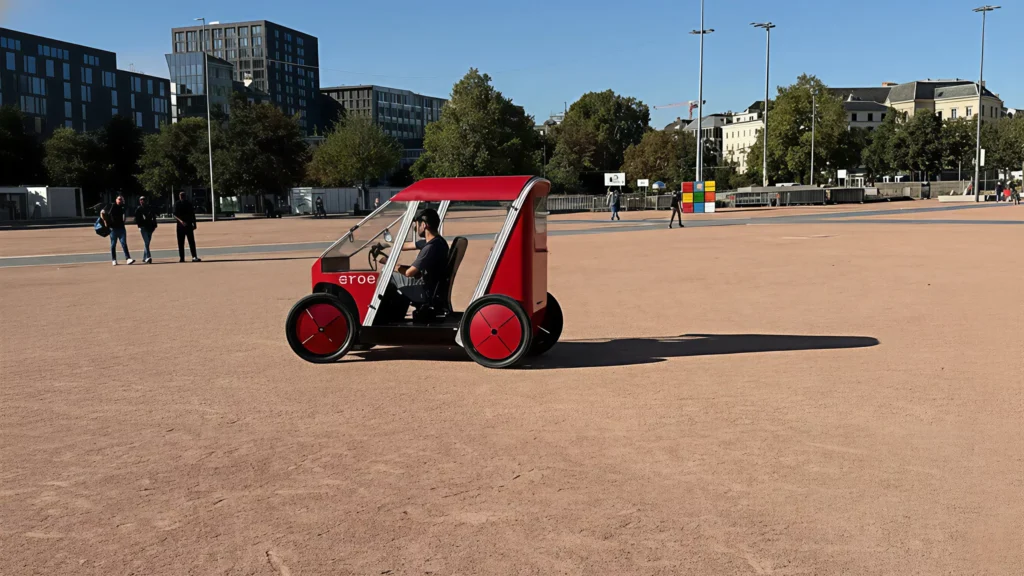
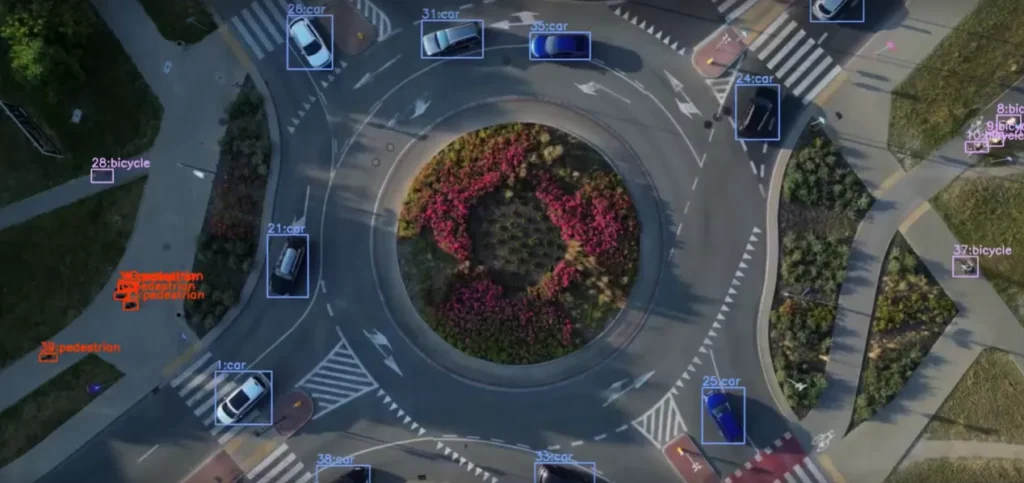
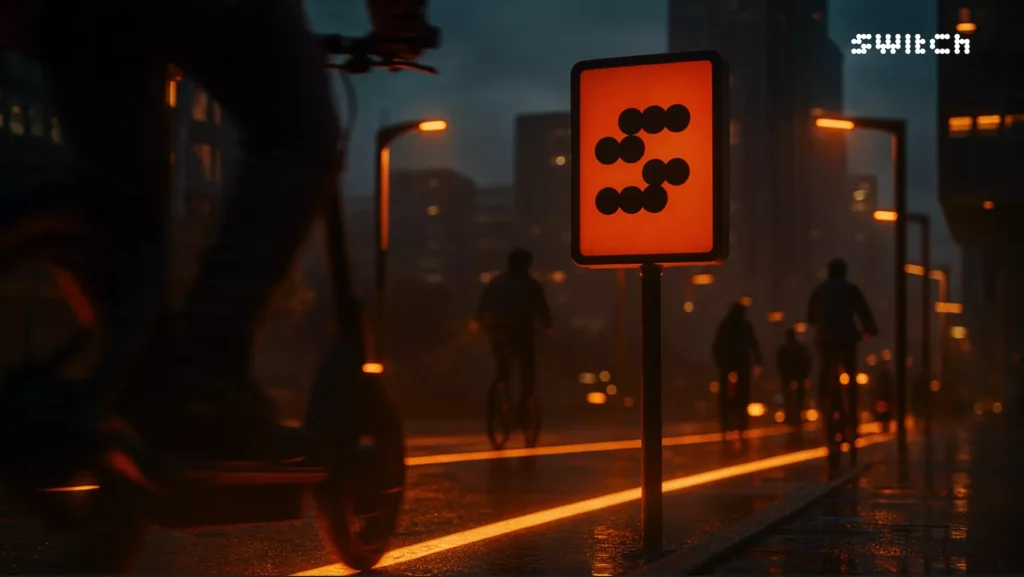



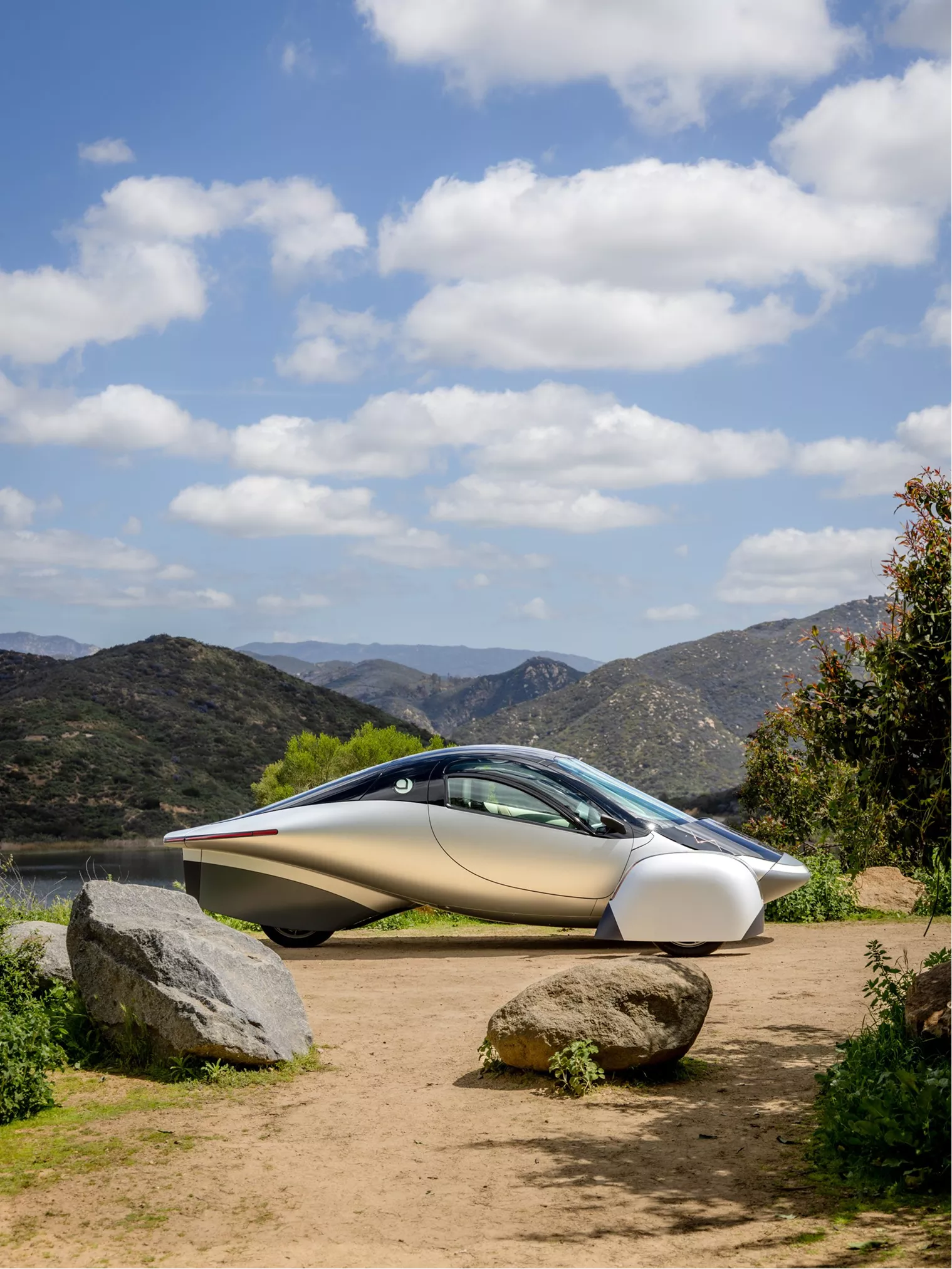
From EVs and batteries to autonomous vehicles and urban transport, we cover what actually matters. Delivered to your inbox weekly.
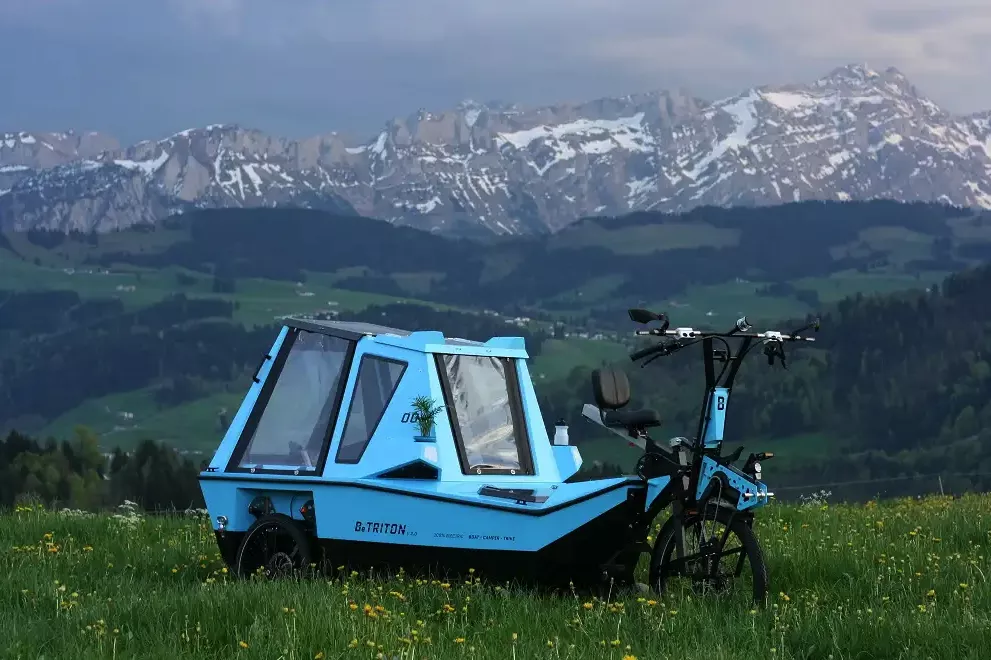
Every summer, Europe fills up. Camper vans crowd the backroads. E-bikes zip through cities. Kayaks bounce on roof racks headed for lakes and rivers. We bring more gear, drive farther, and chase ever-quieter escapes, only to find ourselves in the same places, just with more stuff.
But what if one vehicle could replace all of it?
That’s the bet behind BeTRITON – a three-wheeled, solar-powered, amphibious EV that lets you pedal on land, float on water, and sleep anywhere, all without a drop of fuel. Part e-bike, part boat, part micro-camper, it’s designed for people who want to unplug without hauling half their apartment with them.
It looks unusual, rides like a trike, and it floats like a kayak. And it might just be the most original mobility startup in Europe.
When we started Charging Stack, we told ourselves we wanted it to be our outlet for discovering and showcasing only the brands we think are doing something cool – something no one’s done before, or something done in a way that hasn’t been done before.
And here we are! BeTRITON is really cool, and you’ll want to read the rest of this article to find out why we think that.

BeTRITON didn’t begin with a business plan. It began on a bicycle and 30,000 kilometers of open road.
Founder and CEO Aigars Lauzis came up with the idea during a solo cycling journey from London to Tokyo, pedaling across Eurasia in search of deeper connection with people and landscapes. While living in Shanghai mid-journey, he started sketching what would eventually become BeTRITON: a vehicle that could pedal, float, and shelter, all without fuel or noise.
After returning home to Latvia, Aigars founded the ZELTINI design studio, gathered a small team of makers and friends, and built the first prototype by hand. It looked strange, turned heads, and worked – gliding silently through rivers, forests, and press headlines.
Since then, BeTRITON has grown from a one-man experiment into a Baltic-built startup, with a mission to make escape more accessible and less extractive.
Today when a large majority chasing speed and fast execution, it’s a reminder that slow can be revolutionary.
At the core of BeTRITON is a category-blurring vehicle that functions as a pedal-assisted tricycle, an electric boat, and a compact off-grid camper, all in one.
It’s a fully enclosed, amphibious three-wheeler that lets you:
A roof-mounted solar panel powers the 12V onboard system, which supports lighting, ventilation, and energy for small electronics. The vehicle is constructed with a lightweight aluminum frame and marine-grade pontoons, designed for real-world use in both land and water environments.
Though compact compared to vans or RVs, BeTRITON is still nearly 4 meters long and best suited for storage in garages, sheds, or trailers with sufficient clearance.
With BeTRITON, there’s no need for campsites, docks, or hookups. You can pedal forest trails, float across a lake, and sleep under the stars, all from a single, solar-charged pod.
It’s slow travel, self-contained — designed to bring people closer to nature, without noise, emissions, or permanent impact.
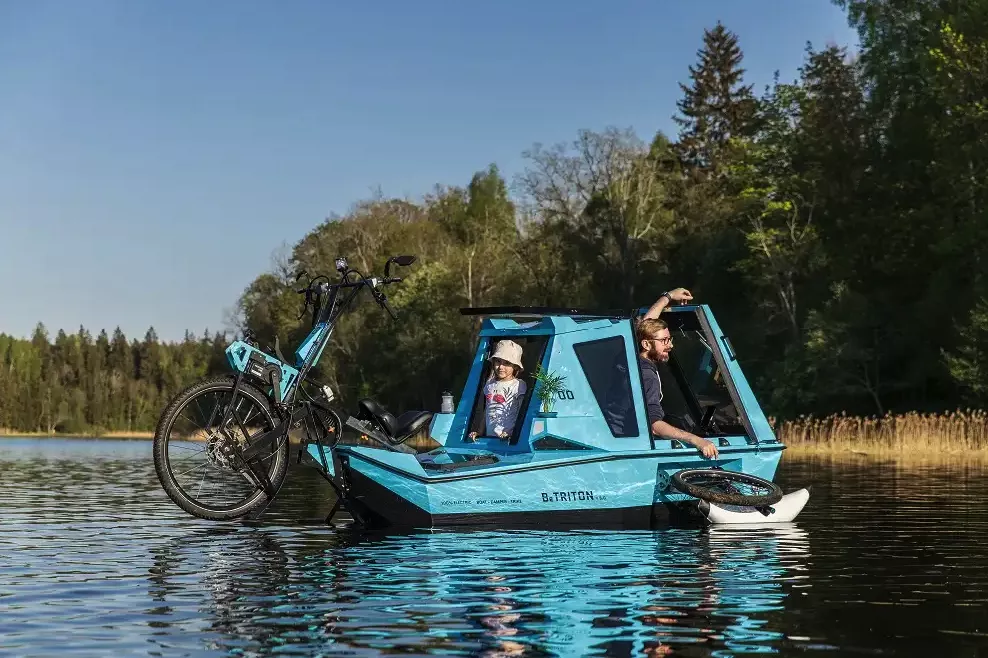
BeTRITON is designed around a simple principle – enable outdoor exploration with as little environmental impact as possible. The company calls it “escape without extraction”, a philosophy that prioritizes quiet, electric travel, self-sufficiency, and a minimal footprint.
The vehicle is built to function without fuel, generators, or campsite hookups. Its integrated features make it suitable for land and water travel, day or night, without the need for additional infrastructure.
Core to this philosophy are:
BeTRITON’s design encourages low-speed, low-impact travel through natural environments, limiting noise and visual disruption. It’s an approach aimed at travelers, nature lovers, and eco-tourism operators who want to experience landscapes without altering them.
At its core, BeTRITON offers a new mode of access to the outdoors – electric, amphibious, and deliberately light-touch.
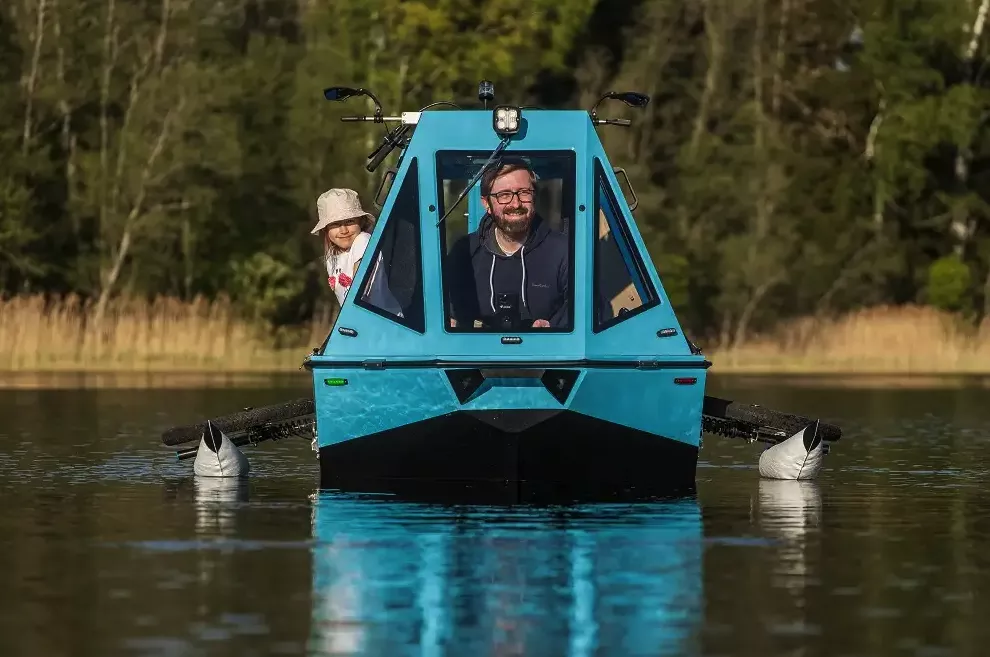
BeTRITON doesn’t fit into any traditional category, and that’s by design. It’s a hybrid amphibious vehicle combining the functionality of an electric-assist tricycle, a compact camper, and a water-capable craft.
The product has been developed for people seeking off-grid, low-impact travel, particularly in natural environments. It’s currently being used in a variety of early market applications, including:
Rather than competing with cars or scooters, BeTRITON is targeting a new category of experience-driven, electric-assisted mobility with applications in eco-travel, glamping, nature exploration, and rural recreation.
The company is not pursuing high-volume urban micromobility or city infrastructure. Contrary to that, it’s building a purpose-driven platform for slow travel, light footprint tourism, and independent outdoor adventure.
BeTRITON is a fully functional amphibious vehicle designed for real-world adventures across land and water. Each unit is hand-assembled in Latvia by the BeTRITON team, using marine-grade materials and components selected for durability, sustainability, and ease of use.
The BeTRITON is designed for calm inland waterways and unpaved roads or trails, not highways or open seas. Depending on the configuration, newer models may also support modular roof setups and towable trailer formats for e-bikes.
All of this supports the core mission – a vehicle that enables self-sufficient, low-impact travel through nature, powered by electricity, sunlight, and your own legs.
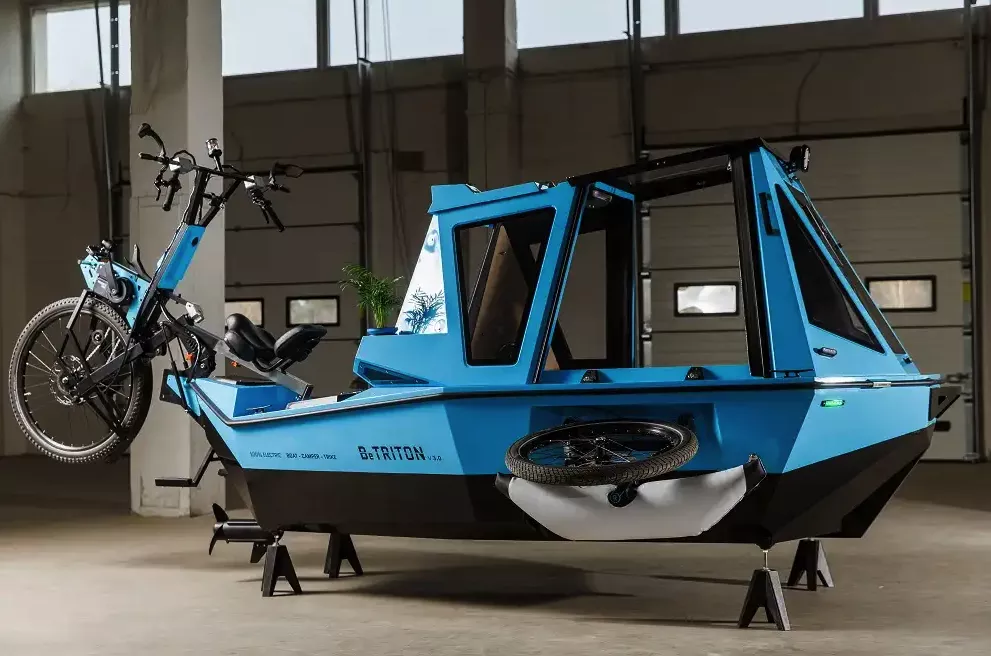
BeTRITON has begun entering real-world use through a mix of rentals, direct sales, and B2B deployments across Europe.
These early applications suggest a range of potential future users – from eco-resorts to nature parks, slow-travel startups to off-grid individuals – interested in low-impact, amphibious mobility that blurs the line between transportation and shelter.
With its quiet motors, compact footprint, and off-grid independence, BeTRITON enables a new kind of exploration, on land, water, and far from the noise of conventional tourism.
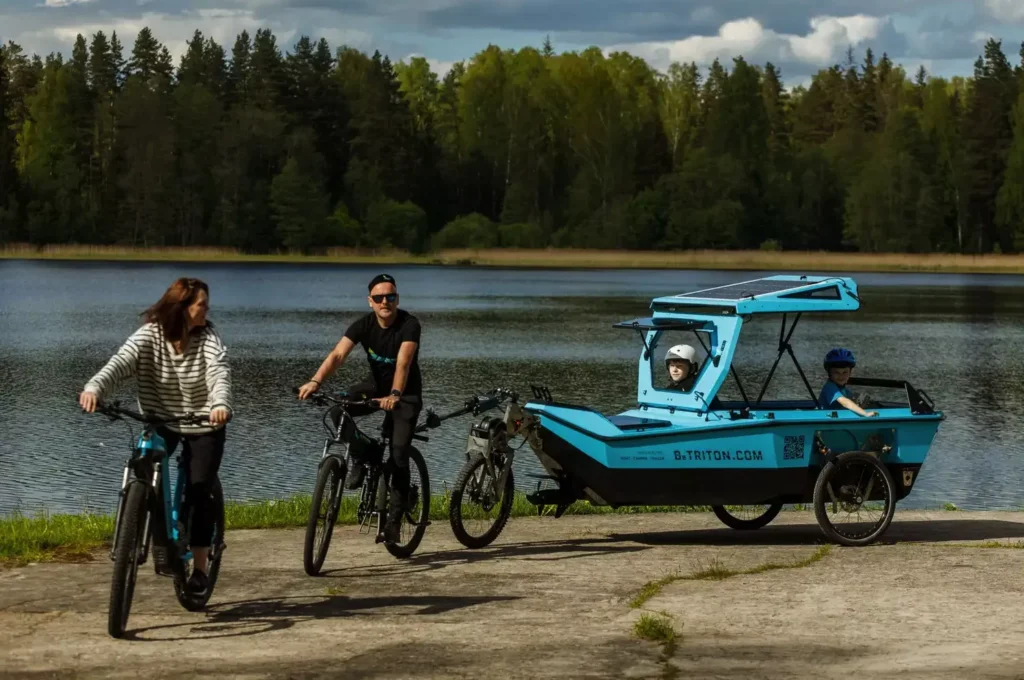
BeTRITON’s future is grounded in small-scale production, ongoing innovation, and partnerships that promote sustainable exploration.
Since its first fully functional prototype in 2020, the company has continued to evolve the product line and business model with a focus on handcrafted quality and real-world utility. Milestones include:
While BeTRITON remains an independent studio focused on limited production, the team is actively exploring new variants and use cases, including models tailored for rentals, solo travelers, and lower-cost deployments.
At its core, BeTRITON’s vision is to provide a new category of mobility that makes it possible to pedal, float, and sleep in one vehicle, without fuel, noise, or heavy infrastructure.
In a world built for constant acceleration, BeTRITON offers something gentler the freedom to travel slowly, deliberately, and with minimal environmental impact.
Designed for off-grid exploration, this amphibious e-trike invites you to pedal along forest trails, float across calm water, and sleep under the stars, all from a single compact unit. With solar power for onboard systems and no need for fuel, hookups, or pavement, it’s a new kind of mobility that values the journey as much as the destination.